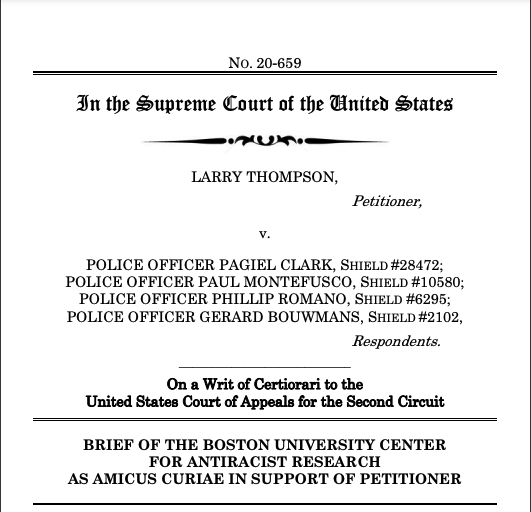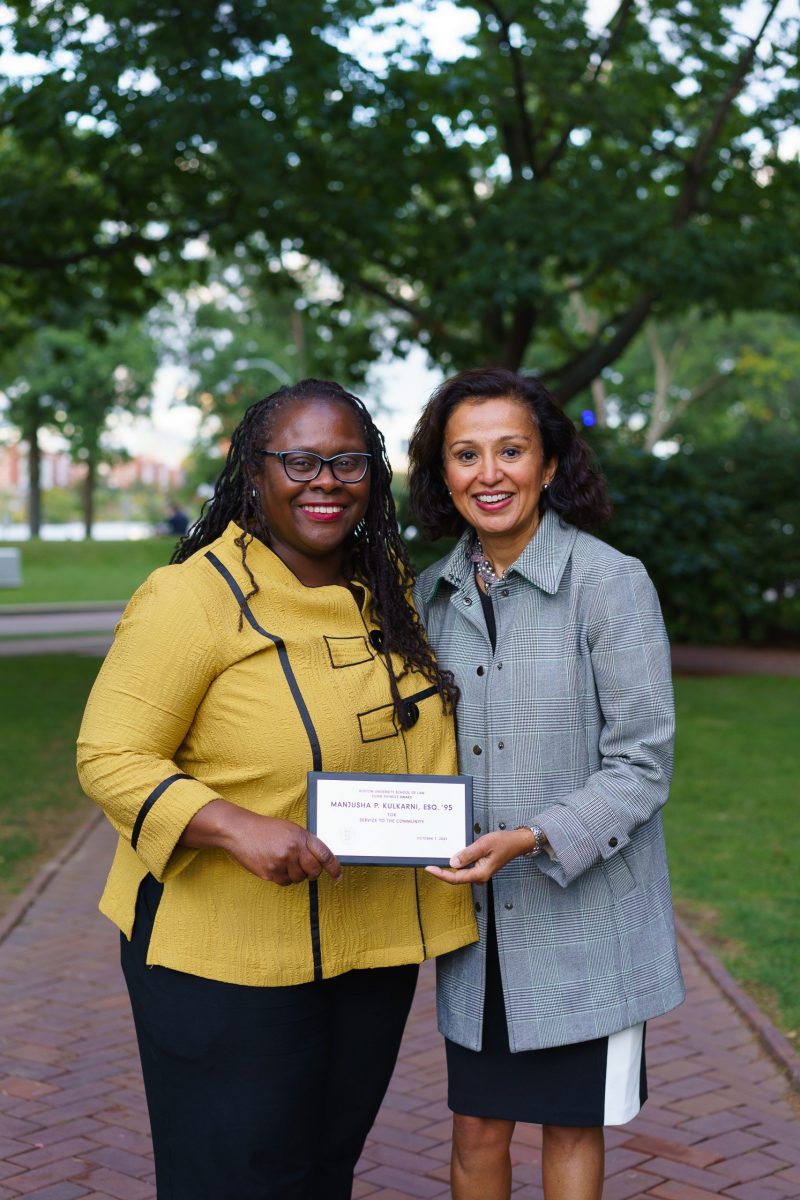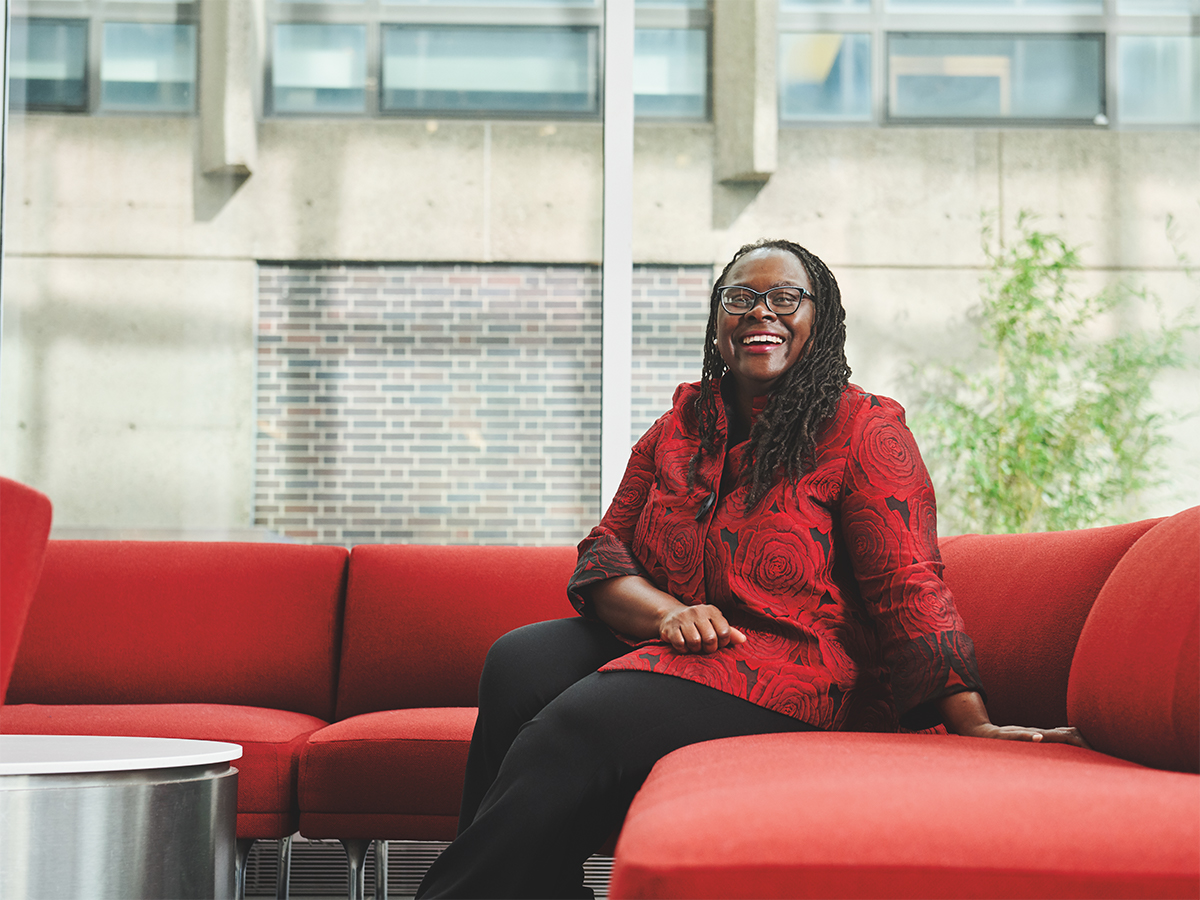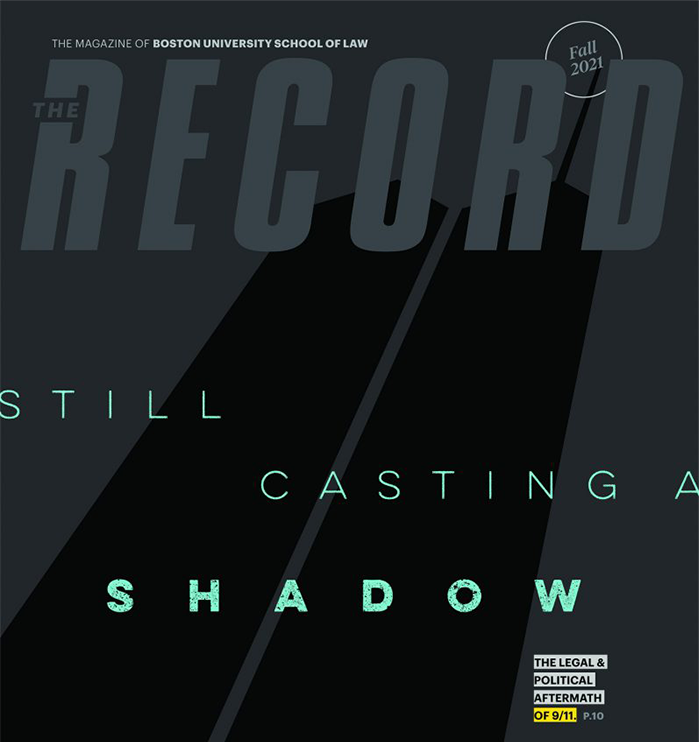Top Moments of 2021
Stand-out moments from this year.

Photos by Kimberly Miragliuolo and Michael Spencer. Additional photos courtesy of Julie Dahlstrom.
Top Moments of 2021
Stand-out moments from this year.
As we wrap up another year adapting to changes brought by the worldwide COVID-19 pandemic, we reflect on some of the moments that stood out. BU Law students, faculty, and alumni continue to find creative ways to safely learn and gather. We are proud of the many accomplishments and forward motion of our community.
Here are a few of BU Law’s notable moments from 2021.

1
We Returned to Campus for In-Person Learning and Celebrations
With the help of vaccines, testing, and a determined community, we were able to get back to some normalcy.
Orientation week welcomed the LLM Class of 2022 and the JD Class of 2024 to the BU Law community.

The JD Class of 2023, some of whom were only familiar with each other on Zoom screens, finally got to meet in person. 
With celebrations came delicious treats. Those clever law casebooks cookies were designed by our very own Library Technician III, Emily A. D’Aquila
See more moments captured at the start of the fall semester

2
The Immigrants’ Rights & Human Trafficking Program Helped Pass State Legislation
In July, Massachusetts passed a new budget, and with it, protections for immigrant survivors of domestic abuse and sex trafficking.
Clinical Associate Professor Julie Dahlstrom, students in her program, BU alumni, agencies, and state representatives formed a coalition that advocated for a policy to help ensure safety for immigrants who report to law enforcement.
Massachusetts Attorney General Maura Healey recognized the impact of the team’s efforts, “Julie Dahlstrom and students from her Immigrants’ Rights & Human Trafficking Program were vital in this effort, and I commend their ongoing work to support survivors, combat crimes against immigrants, and help build trust with law enforcement.”

3
Health Law Professors Provided Guidance as We Continued to Navigate COVID-19
COVID-19 vaccines were made available in 2021, but the rollout of federal and employer mandates and changes in travel restrictions continues to spark debate around pandemic policy.
When President Biden announced a vaccine mandate for federal workers in September, Professor Christopher Robertson proposed Biden further leverage his federal power by requiring domestic airline vaccination mandates. Robertson predicted these requirements could have the following positive effects:
“First, it will cause people who would otherwise fly unvaccinated to get vaccinated, so they can see their friends and family members, enjoy their vacations or do their work.
Second, it may cause others who insist on being unvaccinated to stay at home, and thereby reduce the risk to everyone else.
Third, it may reassure vaccinated folks who are hesitant to travel that it is indeed safe, which supports the airline and tourism industries.”

4
BU Law Collaborated with BU’s Center for Antiracist Research
With a common mission to understand, explain, and solve problems of racial inequity and injustice, the center and BU Law work together toward change.
BU Law students and the center’s Affiliates Program researched for and filed their first collaborative amicus brief in June. The Thompson v. Clark amicus brief demonstrates one way in which this partnership aims inform the court and the public about issues that are particularly important for antiracism.
“You can impact policy through changing the law, through educating the courts, and educating the public. There’s a real component here of evidence-based advocacy,” says BU Law Professor and Deputy Director of Research & Policy at CAR, Jasmine Gonzales Rose.
And BU Law announced the launch of the Antiracist Scholars for Progress, Innovation, & Racial Equity (ASPIRE) scholarship, which will provide full-tuition scholarships to a new cohort of law students who have demonstrated their commitment to antiracism and social justice. Dean Onwuachi-Willig says of the program, “As a law school that not only wants to improve our profession, but also our nation and the world, we want to train our students to use their talents to fight against and eradicate racism rather than sustain it.”

5
Manjusha P. Kulkarni (’95) was among TIME magazine’s 2021 Most Influential People
Kulkarni, along with Stop AAPI Hate cofounders Russell Jeung & Cynthia Choi, are recognized for creating a safe space for their communities to report racism.
Kulkarni says, “This work would not be possible without the bravery & strength of our respondents and the AAPI community at large, and we want to thank them for their willingness to speak out against injustice.”
Minor Feelings author Cathy Park Hong wrote about the organization’s impact on the community: “They created a place where Asian Americans and Pacific Islanders could file firsthand accounts of racism they had experienced—the types of incidents that have long haunted our communities but gone unreported by government agencies and the media and unnoticed by others.”
Kulkarni was also awarded the Silver Shingle for Service to the Community at Alumni Weekend in October.

6
Dean Angela Onwuachi-Willig was Elected to the Academy of Arts & Sciences
In April, the AAAS announced Dean and Ryan Roth Gallo & Ernest J. Gallo Professor of Law Onwuachi-Willig was elected for her groundbreaking work focusing on civil rights equity, workplace discrimination, gender, and family law.
Of the induction, Onwuachi-Willig wrote, “At a time when Critical Race Theory, an area of study that has been central to my scholarship, has been the subject of organized attacks from journalists, politicians, everyday citizens and, at one point, our nation’s President, the Academy’s invitation to me functioned as an important response to that resistance in my eyes. Similarly, in a moment when I, and so many other Blacks, desired to hear from institutions like our courts and our governmental bodies that our lives matter—that Black lives matter—the Academy’s election of me helped to remind me that my work and my voice matter.”

7
We Bid Farewell to John Riccardi
John Riccardi (’91) moved on from his role as associate dean of graduate & international programs, but the connections from his 25-year tenure remain.
Riccardi reflected on his guiding mission, “We treat each student with dignity, which means individualized counseling and check-ins to see how they are doing. Most of them have not been to the US before and do not speak English as their first language. We are their lifeline to this incredible opportunity to get an advanced degree in the US, which is the dream of many students and their parents.”
Learn more about Riccardi’s role at BU Law and the ways he transformed the LLM programs

8
BU Law Worked to Protect Tenants’ Rights
The dean, professors, and students serve as critical resources when housing is at risk.
Jade Brown (’16), BU Law clinical instructor with the Civil Litigation & Justice Program, launched a pro bono service project in fall of 2020 that continues to address tenant needs as the terms for federal and state eviction moratoriums shift. Given the many stressors of the pandemic, housing court needs are in demand, and traditional means of connecting tenants with attorneys are a challenge. The Access to Justice Clinic students guide tenants through an online portal to ensure they can meet the timelines and process to dispute evictions. Learn more about their work.
And with the announcement of the eviction moratorium lifting, Dean Onwuachi-Willig stood with fellow US law schools to provide for the anticipated needs of tenants.

9
We Welcomed New Faculty and Administrators
The new full-time clinical and visiting professors are experts in technology law, entrepreneurship, gender and racial equity in intellectual property ownership and recognition, national security, criminal law, and more.
In addition to new faculty, the School of Law welcomed many talented administrators this past year.

10
Faculty and Alumni Reflected on the 20th Anniversary of 9/11
Three BU Law Professors and one alum examine the ways in which the 9/11 attacks and subsequent responses changed how we think about civil liberties and national security.
Associate Professor Ahmed Ghappour warns: “Our main security threat is cybersecurity, especially given our dependence on data, our interconnectivity, and the artificial intelligence that’s being injected everywhere. All of these things are subject to hacking. All of these things will necessarily be made more vulnerable in a mass surveillance state.”
Professor Robert Tsai saw a theme in the expansion of the executive branch, stating that over time “average Americans began to look to the president as the primary constitutional actor who will keep the country safe.”
Clinical Associate Professor Sarah Sherman-Stokes recognizes: “Institutionalized racism and xenophobia were always baked into US immigration law but were reinvigorated after 9/11.”
Catherine Mitrano (CAS’89, LAW’89), who helped develop the Department of Homeland Security following the attacks, says “I had a personal motivation in making sure we did right by that part of the legislation, giving it the autonomy it needed. We were very focused on that in the early days.”



